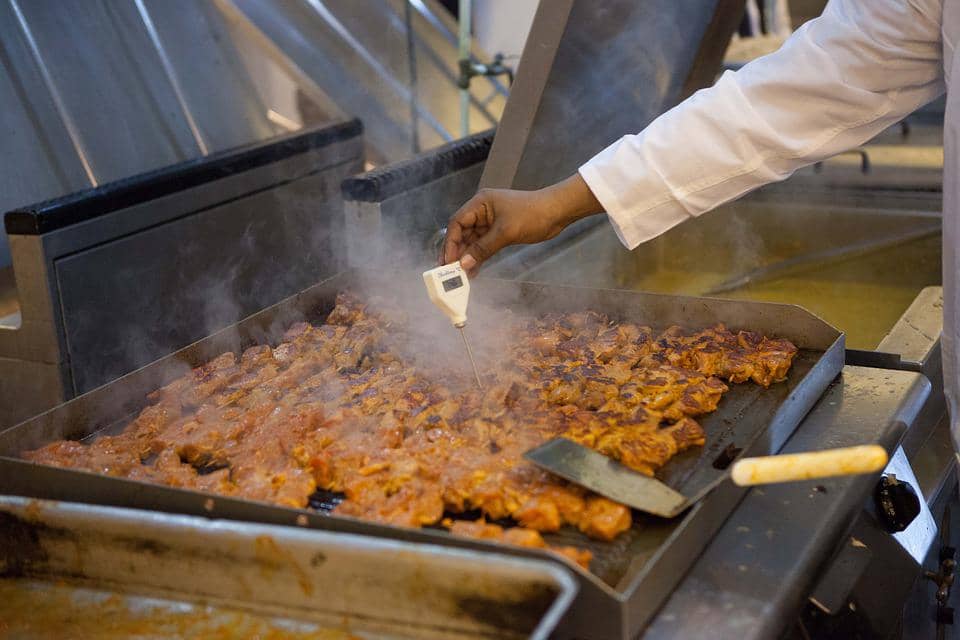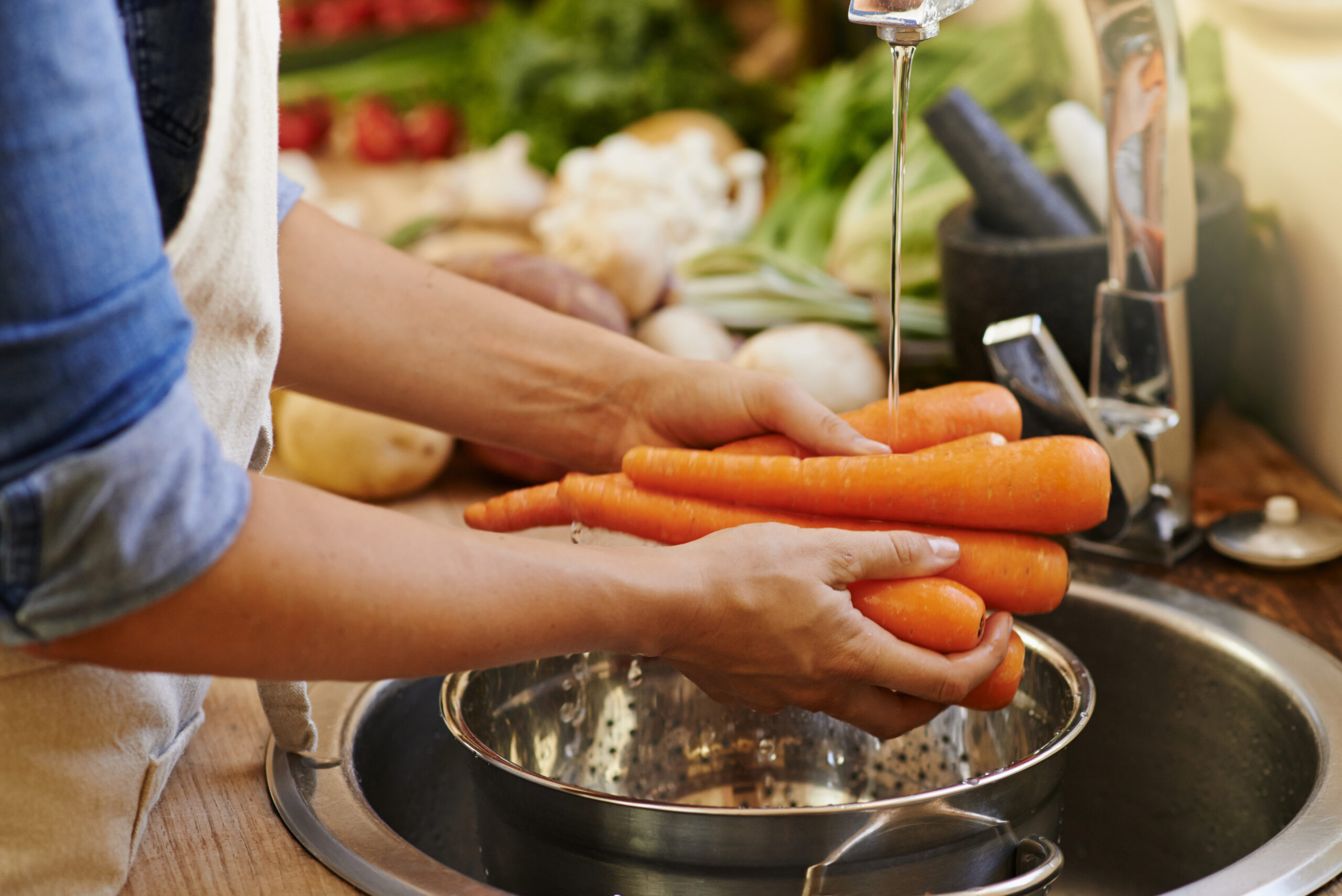In 1997, a grading system for food establishments in Singapore was introduced by the National Environment Agency. They’re given grades of A, B, C, and D based on their premises’ food safety in the given year.
However, this grading system is viewed as rigid. A food establishment may seem to do very well during an inspection. But if there are any food hygiene or safety issues, there is no immediate downgrading.
This annual grading system is only capable of providing a “snapshot reflection” of a food establishment’s food safety and hygiene standards. And while it had been useful, it had reached its limits because 99% of licensees had already achieved an A or B grade for its hygiene and cleanliness by the end of 2017.
After 24 years, exactly in October 2021, the Singapore Food Agency (SFA) announced that they will be implementing a new licensing framework for food establishments called the Safety Assurance for Food Establishment (SAFE) framework.
In this article, we’re going to talk about what the SAFE framework is, along with its grading criteria and licence requirements, training courses, and when it’s going to be implemented.
What is SAFE Framework?
The Safety Assurance for Food Establishments (SAFE) framework is an integrated licensing framework to provide better food safety assurance to consumers. The aim is to incentivise food establishments to maintain the highest possible standards of food safety and hygiene.
Under the SAFE framework, food establishments that have demonstrated a good track record of food safety assurance and have in place capabilities and systems to ensure better food safety standards will be eligible for longer licence durations and higher award tiers.
Criteria for Awards and Licences
Food establishments will be divided into three categories, under which the conditions for licensing are set out. Food establishments will be distinguished by Bronze, Silver or Gold awards tiers. Each tier will have different licence duration, respectively 3 years, 5 years, and 10 years. They will qualify for an award tier based on their food safety track record and food safety capabilities.
Here’s an overview of the awards tiers and licences based on the food establishment categories:
| Category | No Awards | Bronze | Silver | Gold |
| 1-year licence | 3-years licence | 5-years licence | 10-years licence | |
| Category A Establishments involved in significant food handling practices with higher food safety risks. All Category A food establishments are required to appoint a trained Food Hygiene Officer (FHO). | For new licensees, or <2 years without major lapse* | 2 years without major lapse | 5 years without major lapse Implemented a Food Safety Management System (FSMS) | 10 years without major lapse Implemented a certified FSMS Appointed an Advanced FHO |
| Category B Establishments involved in moderate food handling practices with lower food safety risks. | For new licensees, or <2 years without major lapse | 2 years without major lapse | 5 years without major lapse | 10 years without major lapse |
| Category C Establishments involved in minimal food handling practices with negligible food safety risks. Category C food establishments will not have awards. | – | <3 years without major lapse | 3 years without major lapse | 5 years without major lapse |
A “major lapse” example includes causing a foodborne outbreak, being convicted in court for offences against SFA’s regulations, or a suspension of the licence.
Here are examples of food establishment licences based on each categories:
- Category A: food manufacturers, caterers, in-house kitchens, restaurants, canteens, slaughterhouse
- Category B: bakeries, food shops, mobile food wagons, cold stores
- Category C: main operators of eating house/ food courts/ canteen (with stalls), food vending machines, market produce, private market, supermarkets
Food stalls e.g. hawker stalls, canteen food stalls, restaurant within a coffee shop/food court/canteen are not included in the categorisation but will be given recognition awards based on their good track record. Their licence durations will be dependent on the tenancy agreement period.
Training Courses for Food Handlers and Hygiene Officers
SFA has also implemented a training framework in order to support and complement the SAFE framework. These Food Safety Courses (FSC) are organised into four levels for food handlers, Food Hygiene Officers, and Advanced Food Hygiene Officers.
- WSQ Food Safety Course Level 1 – Food handlers
All food handlers in non-retail food establishments will be required to attend and pass the WSQ Food Safety Course Level 1. Food handlers in existing food establishments can start attending this course immediately in order to meet the requirements once the framework is implemented.
- WSQ Food Safety Course Level 2 – Food handlers
This level 2 course is intended for upskilling of food handlers. They will receive additional training on conducting food safety checks at their specific work area.
- WSQ Food Safety Course Level 3 – Food Hygiene Officers (FHO)
This course is required for all Category A food establishments who must appoint a trained FHO that has attended and passed the WSQ Food Safety Course Level 3.
- WSQ Food Safety Course Level 4 – Advanced Food Hygiene Officers
Category A establishments aspiring for the Gold award will be required to appoint a trained Advanced FHO who has attended and passed the WSQ Food Safety Course Level 4.
Implementation of The SAFE Framework
The Safety Assurance for Food Establishments (SAFE) framework will be implemented on 1 january 2023. An estimated 23,000 food establishments will come under the SAFE framework, including retail establishments, such as bakeries and caterers, and non-retail food establishments, such as food manufacturers and slaughterhouses.
SFA said it was mindful of the impact of COVID-19 on businesses and would launch the new framework in 2023 to allow the industry time to recover and enhance their systems and processes to provide better food safety assurance.
While grading assessments have ceased as establishments transit over to the SAFE framework, the inspection regime and routine food safety inspections will continue.
Try having your staff certified by taking an SFA-approved food safety course as soon as possible. At Skillmaster Training Centre, we offer you a food handler course that has been designed specifically to equip food handlers of both retail and non-retail food establishments with the knowledge and application skills to follow food safety and hygiene procedures and policies, as well as maintain the cleanliness and upkeep of premises.




